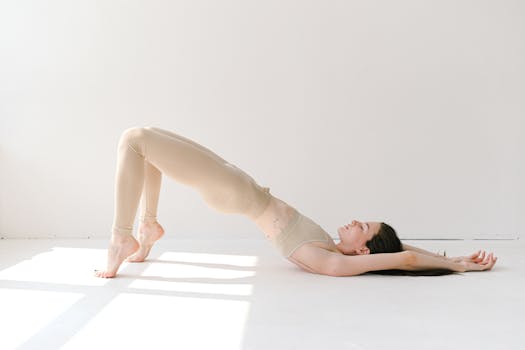Harnessing the Power of Mindfulness and Meditation for Stress Relief

I
n the fast-paced world of today, stress has become an unwelcome companion for many. The pressures of work, family, and personal commitments can often lead to a state of constant tension and anxiety. However, amidst this chaos, there lies a powerful tool that can help individuals navigate through these turbulent times - the practice of mindfulness and meditation. Harnessing the power of these ancient techniques can unlock new paths to stress relief, fostering a healthier, more balanced lifestyle.
Mindfulness is the practice of being fully present in the moment, aware of where we are and what we're doing, without getting overly reactive or overwhelmed by what's happening around us. It is about paying attention to our thoughts and feelings without judging them—without believing, for instance, that there’s a “right” or “wrong” way to think or feel in a given moment. When we practice mindfulness, we tune into what we’re sensing in the present moment rather than rehashing the past or imagining the future.
Meditation, on the other hand, is a specific technique used to achieve mindfulness. It involves focusing on a particular object, thought or activity to train attention and awareness, and achieve a mentally clear and emotionally calm and stable state. Meditation has been practiced since antiquity in numerous religious traditions and beliefs.
One common question that arises is: "How can mindfulness and meditation help with stress relief?" Stress is primarily a reaction to a perception of threat. When we're stressed out, our bodies respond by releasing hormones like cortisol and adrenaline which prepare us for action. However, chronic stress can lead to various health problems including heart disease and depression. Mindfulness helps us recognize our patterns of stress response and teaches us how to intervene before our body goes into overdrive. Meditation aids this process by training our minds to focus on the present moment and reduce the amount of time we spend worrying about future events or ruminating over past ones.
Another frequently asked question is: "How can I incorporate mindfulness and meditation into my daily routine?" The beauty of these practices is that they can be done anywhere, anytime. You can practice mindfulness while eating, walking, or even during a break at work. As for meditation, it doesn't require any special equipment or space. All you need is a quiet place where you can sit comfortably for a few minutes each day. There are also numerous apps and online resources available that provide guided meditations for beginners.
Despite the proven benefits of mindfulness and meditation, there are still many myths surrounding these practices. Some people believe that they are religious practices or that they require hours of dedication each day. However, these are misconceptions. Mindfulness and meditation are not tied to any particular religion and can be practiced by anyone regardless of their beliefs. Moreover, even a few minutes of practice each day can yield significant benefits.
In conclusion, mindfulness and meditation offer powerful tools for managing stress in our daily lives. They help us stay anchored in the present moment, reducing our tendency to worry about the future or dwell on the past. By incorporating these practices into our daily routines, we can cultivate a sense of inner peace and tranquility that helps us navigate life's challenges with greater ease.
The journey towards tranquility may not be easy, but it is certainly worthwhile. As we continue to explore the realms of mindfulness and meditation, we unlock new dimensions of our being. We learn to respond rather than react to stressors, fostering a healthier relationship with ourselves and the world around us. So why wait? Start your journey towards a more mindful and peaceful existence today. Remember, the power to transform your life lies within you.